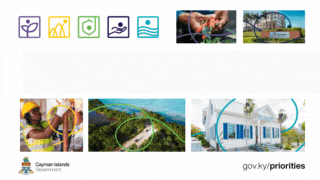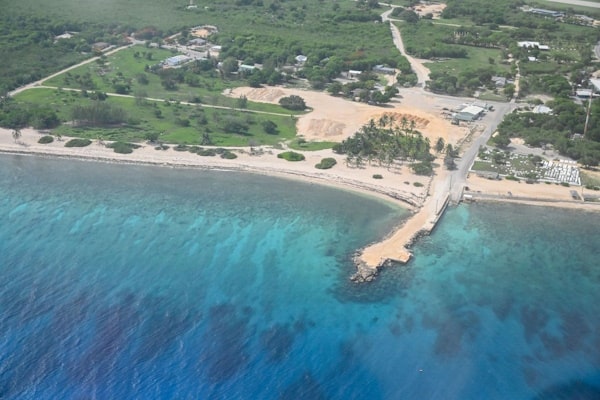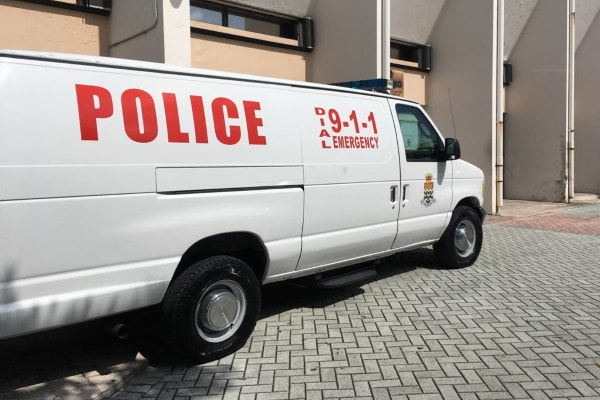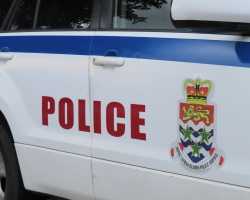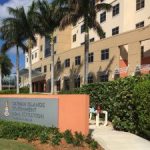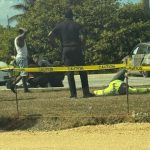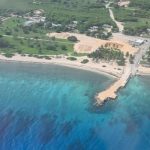2014 in Review: Island health
(CNS): After a Cabinet reshuffle mid-December, the health and environmental health portfolio is now under Premier Alden McLaughlin in his expanded ministry. Disgraced minister, Osbourne Bodden, has kept his seat in Cabinet with a greatly reduced ministry but it seems unlikely that the policies will change. The need to tackle the huge problem of waste management remains one of government’s most pressing issues.
Mount Trashmore
A committee made up of technical experts was formed to spearhead the development of a planned waste management system for the islands. At its first meeting on 22 January, members began work on the five stages of the initiative to plan, develop and execute a new approach to garbage in Cayman.
Osbourne Bodden, the minister with responsibility for health and environmental health, said $1 million was needed to address the management of the landfill because years of chronic under-investment meant the site was not being managed properly. Given the constraints imposed by the UK and the Framework for Fiscal Responsibility, which sets out the process government must follow on all public sector projects, it was impossible to address the long-term solution any quicker than the two years he had already outlined, he said.
Fire crews from the Cayman Islands Fire Service (CIFS), with help from staff from the Department of Environmental Health, battled a series of deep underground fires at the George Town landfill (also known as Mount Trashmore) throughout the year, particularly January and February and again in July and August, and put in hundreds of man hours.
In May the government began its search for a qualified consultancy firm to create both a national waste management strategy and an outline business case to drive the procurement of the garbage solution for the landfills in George Town and the Sister islands. The ministry looked for proposals from consultant teams, which will include a financial consultant and a solid waste management expert, who will lead the team to contract with government as the prime consultant.
The global consultant firm awarded the $0.5 million contract to shape government’s national waste management policy, make the outline business case and then assist in the procurement of contractors began work in November. Phil Scott from AMEC, which won the competitive bid as the lowest priced and most technically able firm, was in Cayman examining the current situation and beginning the assessment. His firm will guide government in its selection of the most suitable management solution to reduce the George Town dump and create a modern waste system for the future. Officials said the waste-management project should be ready for tender within twelve months.
Health City Cayman Islands
The hospital spearheaded by Dr Devi Shetty officially opened with much fanfare in February and completed its first operation in April. The very first person to go under the knife at the state-of the-art facility underwent a cardiac procedure, which, given its complexity, would in the past have been done off island, hospital officials said. The patient, who was a local Caymanian, was operated on by the chief interventional cardiologist and electro-physiologist of the new hospital, Dr Ravi Kishor.
In August a 49-year-old local man had life-saving surgery at the Shetty hospital, which was also the first of its kind in the region. Albert Seymour, who was suffering from severe heart failure, had an operation to insert an artificial heart pump he is heading home to begin his new life.
Following the commitment by Dr Devi Shetty before Health City Cayman Islands opened that it would offer life-saving operations to children in need from around the region free of charge, four young Haitian patients returned home last week after successful heart operations. The youngsters, aged between 6 and 16, travelled to Cayman last month for the vital surgeries performed by the Shetty hospital’s surgeons led by Dr Binoy Chattuparambil, a senior cardiothoracic and vascular surgeon, and Dr Sripadh Upadhya, a senior paediatric cardiologist. The children were identified by Haiti Cardiac Alliance, a US-based charity, as being in desperate need of the heart operations.
Mental and physical disabilities
The Steering Committee driving the Cayman Islands towards a new policy to ensure that people with disabilities are not discriminated against say they are determined not to let their report end up on a shelf gathering dust like other policy initiatives. So, as well as determining specific goals, they are also outlining detailed action plans, identifying who does what and when and laying out a monetary timeframe for each goal to be accomplished. The Cayman Islands Disability Policy 2014-2033 (because the committee believes it will take two decades to implement it in its entirety) aims to ensure that those with disabilities live with dignity, are respected and have the opportunity to participate fully in society.
In May, a grassroots campaign, the Blue Spot, was launched to shame physically abled drivers from using ‘blue spots’ reserved for people with disabilities. The group encourages people to send them pictures of cars parked by such selfish drivers, which are posted on their Facebook page.
Illustrating how poorly equipped Cayman is to help people with mental illness, in June A 39-year-old homeless woman pleaded guilty on Friday morning to a number of offences after a ‘topless rampage’ in George Town in May, when, half naked, she stole food from Café Sol and Burger King, smashed up a display cabinet and threatened people with a machete. Justice Quin sentenced Debbie Ebanks to 12 months in prison but saidd the sentence would be partially suspended if and when Ebanks became suitable for release based on the recommendation of a mental health team and her probation officer.
With the Cayman Islands facing a woefully inadequate mental health system, officials have turned to the World Health Organisation for assistance in beginning a survey to assess the problems and gaps Cayman has when it comes to dealing with people suffering from mental health problems.
As the mosquito borne virus chikungunya spread throughout the region, local authorities urged people to be vigilant. The first case was identified in Saint Martin in 2013 and spread to Anguilla, Antigua and Barbuda, British Virgin Islands, Dominica, the Dominican Republic, Guadeloupe, Guyana, Haiti, Martinique, Saint Barthelemy, Saint Kitts and Nevis, Saint Vincent and the Grenadines, Saint Lucia and Saint Maarten, as well as Saint Martin.
Blood samples of suspected cases were sent to the Caribbean Public Health Agency (CARPHA) in Trinidad for testing.
Throughout 2014 over 90 people living in Cayman have contracted the mosquito-transmitted chikungunya virus, with most of them picking up the illness in regional countries. Dr Kiran Kumar, the medical officer of health, said that cases are declining here and around the region but urged people to still take precautions against mosquito bites and help prevent their breeding.
Category: Environmental Health, Health, Local News






